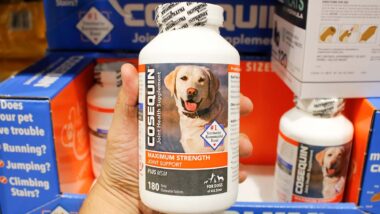Top Class Actions’s website and social media posts use affiliate links. If you make a purchase using such links, we may receive a commission, but it will not result in any additional charges to you. Please review our Affiliate Link Disclosure for more information.
Some consumers might receive unwanted phone calls from car manufacturers that use pre-recorded messages. In these situations, these pre-recorded calls could be grounds for a lawsuit against a car dealership.
Calls with pre-recorded messages can show up as live calls when a person answers the phone or on a voicemail if the caller ignores or is not able to pick up the live call.
What Is TCPA Compliance?
Any business attempting to reach a person over the phone, text, or fax must use a process that meets TCPA requirements. The TCPA (Telephone Consumer Protection Act) is a federal law that protects consumers from unwanted telemarketing activity,
The TCPA was originally created to stop telemarketing calls to consumers. The law restricts companies from contacting consumers unless that company has received previous express consent to reach out to the consumer. The form of consent required depends on the content of the message, the kind of device, and the technology involved.
Car manufacturers who reach out to customers have to do so through TCPA compliance procedures. If a car dealership violates TCPA laws, the consumer can file a lawsuit.
Some of the behaviors reported by consumers who have been contacted by car manufacturers include unwanted text messages, unwanted phone calls, pre-recorded calls, or pre-recorded voicemails.
Unsolicited phone calls are annoying and they might also be illegal depending on the circumstances. If the company is sending you telemarketing messages without you buying a vehicle from them or opting in to those messages, keep a record of any and all calls or texts that potentially violate the TCPA.
A prerecorded call with a robotic voice makes it impossible for a consumer to ask that the phone call stop. These robocalls and automated dialing systems often used by the companies placing these calls were mentioned by Congress in particular when the TCPA was originally enacted.
Even a call that begins with a real person saying “Please hold for an important message” could qualify as a TCPA violation according to court rulings. Previous FCC rulings on what qualifies as a pre-recorded call have called out messages that are completely pre-recorded from beginning to end and involve no human activity.
How to Stop Telemarketing Calls

First, you may be able to install call-blocking software on your phone. Although most phones allow consumers to block individual numbers, solicitors may simply begin to call you from a different number if their calls aren’t getting through.
Some phones come with internal call blocking that you can turn on or off. Even if your phone does not have that option, you may able to download a free or paid blocking app. These apps detect potential spam calls and send them straight to voicemail, block them, or mark them as a likely unwanted call.
These apps do not always work perfectly however, and may end up blocking calls that are not spam or allowing unwanted calls through. Additionally, while these apps may prevent your phone from constantly ringing, your voicemail box may soon be clogged up with telemarketing voicemails, making it difficult to find voicemails you actually want to receive.
Some cell coverage carriers, such as AT&T, Verizon, and T-Mobile also offer call blocking features to customers.
If you receive many unwanted calls, you may also want to register your number with the National Do-Not-Call List. The list is free to sign up for, and registration never expires, unless you change your phone number. In order to be in TCPA compliance, companies are prohibited from contacting people who have registered their name with the Do-Not-Call List without their prior, express consent.
You may also be able to report unwanted calls to the FCC. You can submit a complaint online, detailing the types of calls you have received and the company that is responsible for them.
Lastly, you may be able to file a lawsuit under the TCPA against the car manufacturer responsible for making unwanted calls.
Although filing a complaint with the FCC may be helpful in alerting the regulatory agency to the potentially illegal activity of companies committing TCPA violations, the FCC does not follow up on each individual complaint. While filing an informal complaint with the agency is free, the FCC will not reach out to the solicitors on your behalf to compel to stop contacting you. Instead, the agency reviews these complaints for patterns in order to determine whether any individual company is routinely violating consumer privacy protection laws.
Consumers who file formal complaints with the FCC, which cost several hundred dollars, may have better luck in compelling solicitors to leave them alone. However, this process may be lengthy. In order to get immediate help for the harassing or intrusive calls you are receiving, you may be able to speak with an experienced TCPA compliance attorney about your legal options.
How to File a TCPA Lawsuit
Certain circumstances enable a consumer to fight back more than just asking the company the stop calling or texting, such as if the consumer did not provide their express permission in writing to the dealership to receive those messages or calls and if you did not purchase a vehicle from the dealership communicating with you.
Companies should have clear TCPA compliance rules in place before making or placing any calls to people who are not customers. Unfortunately, some companies are willing to run the risk by placing these calls and count on consumers not taking any legal action.
If you or someone you know has received text messages or calls from car dealers when you did not sign up for them, Top Class Actions can assist you with finding a qualified lawyer to help you.
Victims of TCPA violations are often able to pursue compensation for these intrusions. In many cases, victims may be able to receive $500 for each violation, or up to $1,500 if they can prove that the violations are willful.
Car Manufacturer TCPA Compliance Settlements
The TCPA requires marketers to get customer permission before contacting them, warns industry publication Wards Auto to car manufacturers and dealers. Wards also notes that TCPA litigation in the auto industry is growing each year.
Indeed, that growth can be seen in some recent TCPA settlements over claims that auto companies illegally called or texted consumers with advertising. In one settlement, car dealerships reportedly agreed to pay $850 million to end allegations they improperly texted thousands of consumers.
In addition, the auto industry has gotten into hot water over using robocalls. According to Automotive News, a Florida dealership paid nearly $5 million over using robocalls to advertise their car “buy back program.”
Others in the auto industry have also paid to settle claims that they violated the TCPA, including a reported $5.7 million settlement out of Naples, Fla. ending a class action lawsuit alleging hundreds of thousands of consumers were subject to unwanted marketing calls.
An Oregon dealership also paid $2.5 million over spam text messages it allegedly sent to over 100,000 customers in violation of the TCPA.
Auto industry insiders say that the potential for non-compliance with the TCPA is high because advertising lead generators often fail to confirm that they have the permission of customers when they include them on phone and email lists. In addition, customers are asked to enter contact information in a number of places while researching a vehicle purchase online. These sources may not properly obtain consent from the consumer for future advertising calls, warns Ward Auto.
Join a Free Car Dealership TCPA Violations Class Action Lawsuit Investigation
You may be eligible to join this lawsuit investigation into car dealership TCPA violations under the following circumstances:
- You did NOT provide express permission in writing to the car dealership to receive the calls or messages.
You did NOT purchase a vehicle from the dealership that is contacting you.
ATTORNEY ADVERTISING
Top Class Actions is a Proud Member of the American Bar Association
LEGAL INFORMATION IS NOT LEGAL ADVICE
Top Class Actions Legal Statement
©2008 – 2024 Top Class Actions® LLC
Various Trademarks held by their respective owners
This website is not intended for viewing or usage by European Union citizens.
















3 thoughts onAre Car Manufacturers Pre Recorded Calls Violating the TCPA?
All the time block number and calls from different number
add me please
Add me please